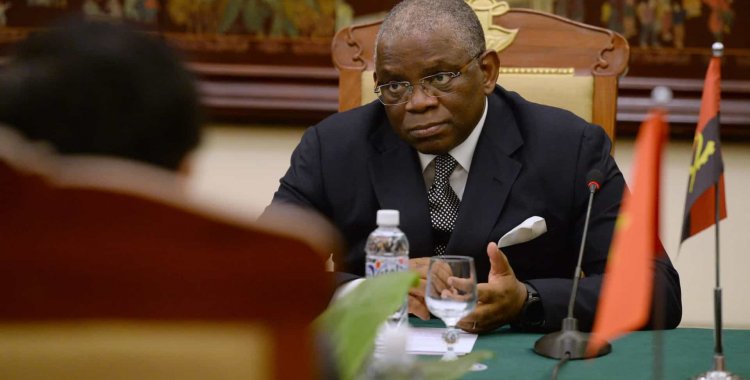"We initialed the Post-Cotonou Agreement in April 2021 and we are going to sign it now, probably in June, in Samoa. Then we enter the ratification process by the national parliaments. As soon as we have the minimum number of ratifications we start implementation end of 2022, we must have the agreement working", said the Angolan diplomat, leader of the Organization of African, Caribbean and Pacific States (ACP Group), in an interview with Lusa.
The EU "is already working with several governments of the countries in each region to identify what they can do", but also "talking to several countries, because not all of them understand how the "Global Europe" or Neighborhood, Development and International Cooperation (NDICI)", revealed Georges Chikoti.
The NDICI is the financial muscle of this framework agreement. It includes 29 billion euros for cooperation with the 48 African member countries of the OASCP, 800 million dollars for Caribbean countries and 500 million dollars for Pacific Rim states. A total of 100 billion dollars will be earmarked for EU non-reimbursable development assistance to the 79 ACP states over the next 20 years.
The new framework agreement provides for a "much more complex" institutional architecture, with major changes compared to the previous Cotonou Agreement. It is based on "three protocols, one for Africa, another for the Caribbean and a third for the Pacific", and its operationalization, recognizes Chikoti, can bring several challenges and even delays in the implementation of the programs.
The secretary general of the ACP Group is not, however, concerned about the possible "marginalization" of the organization he directs, even if at an early stage, because the agreement "is negotiated, the money is there and it will not run away time for the conditions of the new institutions and the recipient countries to start receiving".
"It is a good cooperation agreement. It is written and signed, it may be delayed, but what was agreed will not change", said the official, who praised the fact that this text was "negotiated in a profound way, with the participation of all states".
"One of the criticisms you hear is that this is colonial aid. It is not, because nobody was forced to enter into this agreement. There are 79 countries, which, together with the 27 Europeans, together, in a joint assembly, discussed the set of programs and decided. Nobody was forced to be in the agreement", reinforced Georges Chikoti.
The Angolan diplomat also considers that "the most important thing now is that the African continent has stability", even to benefit from various mechanisms that are announced, but that crucially depend on that "stability", from the outset the African Continental Free Trade Area, created at the beginning of 2021.
"The African Union is moving forward with the Free Trade Area, which I think is very good, and through this EU-ACP cooperation we can now create the physical infrastructure" that Africa needs. "Cooperation with the EU brings funding that they [African governments] did not anticipate and do not have," he said.
On the other hand, underlines Chikoti, "Europe will expand the presence of the European Investment Bank (EIB) in Africa, which already has an office in South Africa, and will now probably have one in Kenya, another in West Africa. will facilitate the emergence of new financial instruments that African countries will be able to use, at very good interest rates of 1 percent or 1.5 percent".
"It is necessary to transform what Africa produces and also consume what it produces through internal commercial circuits, and thus create possibilities for employment and integration, with the inclusion of youth. many opportunities", maintains the diplomat.
The Economic Community of West African States (CEDAO), Chikoti illustrated, has "relatively stable infrastructure." "Today you can easily go by car from Ivory Coast to Lagos. There is already an integrated digital network, it is the region that politically responds better today to the challenges of development, more than East Africa or Southern Africa".
This example has to be extended to other African regions, argues Chikoti. "The Free Trade Area will force Africa to accelerate and create physical infrastructures. It is not possible to drive from Cameroon to Angola or the Democratic Republic of Congo. It is necessary to accelerate this integration", he defended.
Another instrument that Chikoti would welcome would be the creation of a single African currency to circulate in the new free trade area. "If Africa goes to one currency, it can harmonize itself... I see, for example, that in southern African countries there is a tendency to harmonize their currencies with the rand, [the currency] of South Africa. There is this parity...".
"It is possible to establish an African currency. Or an African currency could be established and accession could be free, after the necessary national adjustments", he considered, adding that "only in this way" Africa will be able to "create a free economic space".
"Many of the answers reside within the continent itself and should depend on the decision of African leaders themselves," he added.
"And if it is said that African youth are fleeing the continent, it is because not many opportunities have been created so far for young people to be able to integrate into African productive structures. Scientific and technological education is also very important in this respect. That's what we haven't done well so far. And most of Africa has been independent for about 70 years, we can't just blame those who colonized us," he said.
"It is true that colonization corresponded to a long period and that today it is still a burden, yes, but what did we do after that? , we are closed by selfishness. There are presidents who think that the countries are theirs and that the people are also theirs", concluded Georges Chikoti.







